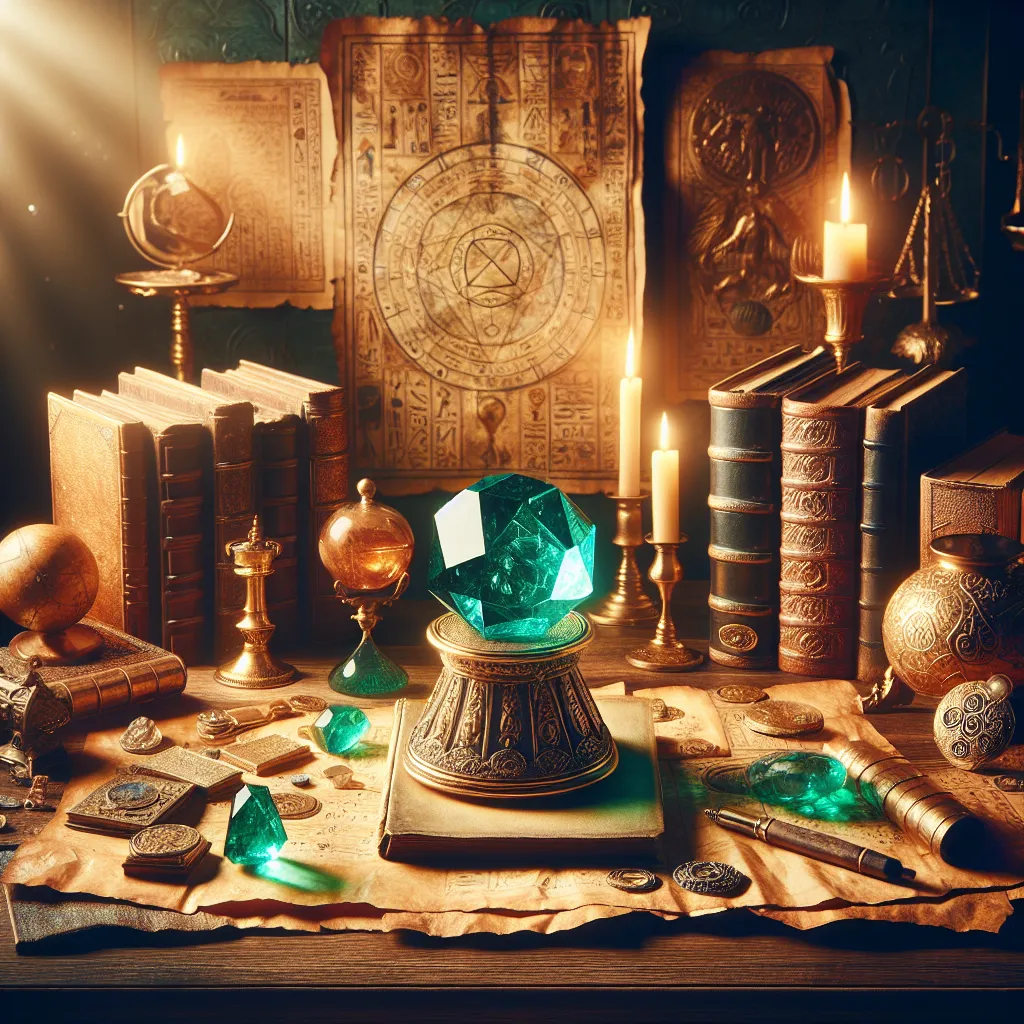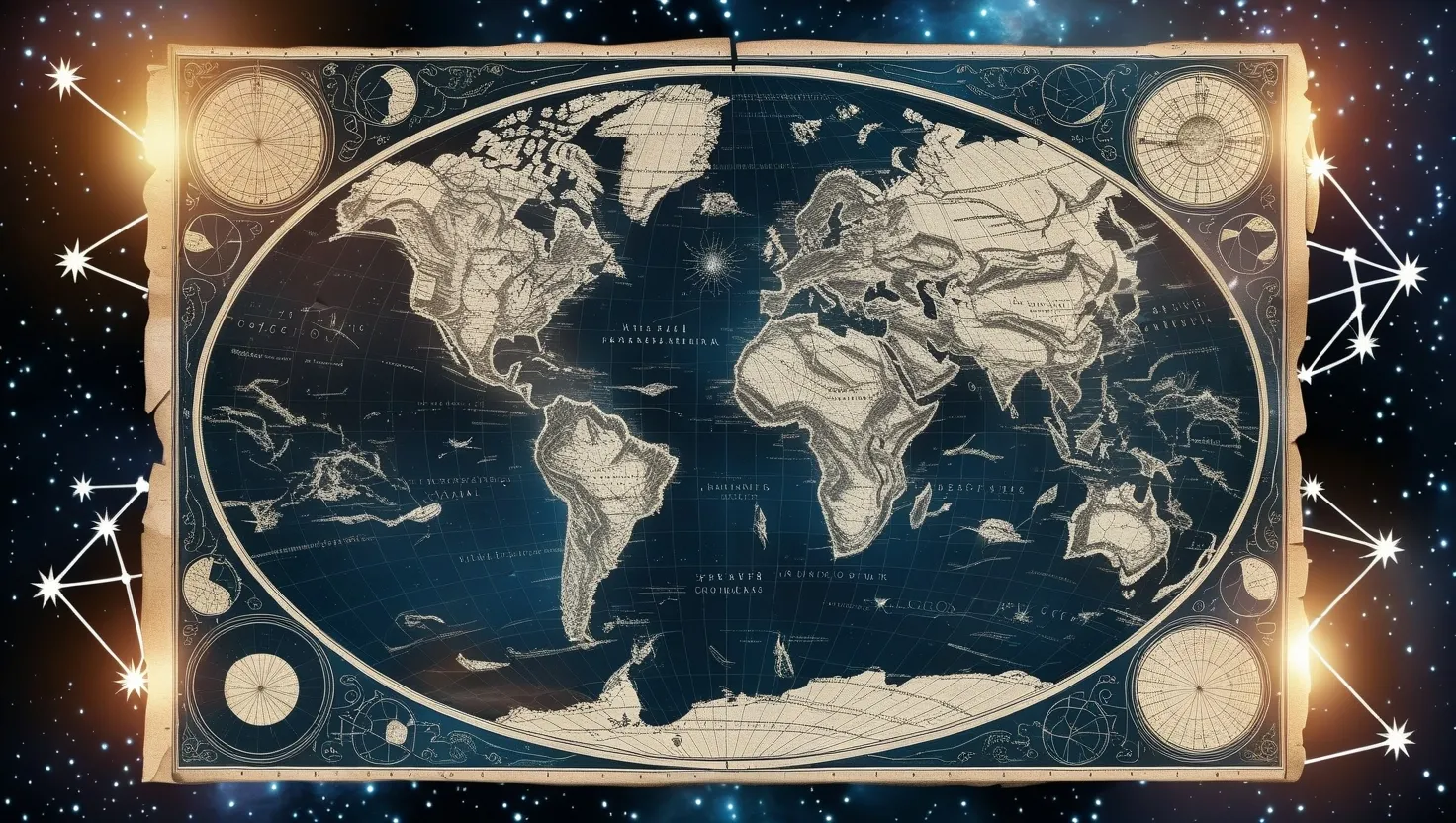Hey folks, I’ve always wondered, what if you could have eternal life or endless wealth? What if you could have both? According to legend, you’d need the Philosopher’s Stone, a mythical substance capable of turning ordinary metals into gold and granting immortality.
Now, bear with me because this isn’t your typical legend. There’s a book, the Book of Aquarius, that claims to hold the secrets to making the Philosopher’s Stone. Although making it can take years, the ingredients are shockingly simple—you probably have them at home right now. The instructions in the Book of Aquarius echo ancient texts and connect deeply with a peculiar artifact known as the Emerald Tablet.
The journey of this knowledge spans across centuries. Medieval alchemists got their information from Arabic scholars a thousand years ago, who, in turn, had taken it from the ancient Egyptians. The Egyptians supposedly received their wisdom from Atlantis, about 36,000 years ago. That’s some deep lore, right?
Throughout history, creating the Philosopher’s Stone has been the Holy Grail of alchemy. This extraordinary substance wasn’t just about turning metals into gold; it was also dubbed the Elixir of Life for its reputed power to restore youth and possibly grant immortality. Some of history’s brightest minds, like Isaac Newton, were so captivated by this quest that it became their life’s work.
Newton wasn’t alone. Holy Roman Emperor Rudolf II and other notable figures like John Dee and Edward Kelly spent large sums and years trying to crack this mystery. Legends even tell of an alchemist named Nicholas Flamel who succeeded; if those stories—or Harry Potter—are to be believed, he and his wife are still alive today. Amazing how these tales endure.
The idea of prolonging life isn’t new. From the Fountain of Youth to modern concepts like cryonics and mind uploading, humanity has always been fascinated with immortality. But it all supposedly began with the ancient Egyptian deity Thoth, a god of wisdom, writing, and magic, who shared the secrets of the universe through the Emerald Tablet.
In an epic narrative that sounds almost too grand for fiction, Thoth came from an advanced civilization called Atlantis. Plato described Atlantis as a grand society divided into ten realms, each ruled by its own leaders and dedicated to different pursuits. Thoth, born in the city of Keora in the Atlantean kingdom of Undal, was a pivotal figure who passed his knowledge down through generations.
Fast forward to ancient Greece, and the Emerald Tablet surfaces again. This time, it’s attributed to Hermes Trismegistus—a blend of the Greek god Hermes and the Egyptian god Thoth. Upon its discovery around the First Century A.D., the tablet became a cornerstone for both Islamic and European alchemists. It was reputed to hold the crucial secret to immortality: a sort of code just waiting to be cracked.
In 1925, a man named Dr. Maurice Dorial claimed he found not one but ten of these tablets, leading to various translations and interpretations over the years. Even more intriguing is the modern resurfacing of these ancient secrets with the publication of the Book of Aquarius.
On March 11, 2011, this mysterious book popped up online, offering what appeared to be clear, straightforward instructions for creating the Philosopher’s Stone. And guess what? It’s said you only need one very mundane ingredient—urine. Yep, you read that right.
So, is this legit or just another elaborate hoax? The Book of Aquarius is not your run-of-the-mill hoax; it’s a detailed, well-referenced document that cites 49 alchemical texts. Even if it raised a few eyebrows, the book and its dedicated followers worked through its lengthy, somewhat intense process, attempting to create their version of the stone.
But, mystery alert—without warning, the Book of Aquarius website was taken down. Speculations range from successful creation attempts wanting to hush things down, to believers thinking that some elite shadow groups or “Illuminati” got involved. Makes you wonder, right?
Whether you believe the legend, the tint of mysticism, or see it as part of a broader pursuit for knowledge, the story of the Philosopher’s Stone continues to intrigue curious minds. So, if you’re ever tempted to embark on this alchemical journey, or just dive into these captivating stories, there’s plenty of ancient and modern lore to explore. But hey, if you find the key to immortality, remember to send me a postcard in a few centuries!






